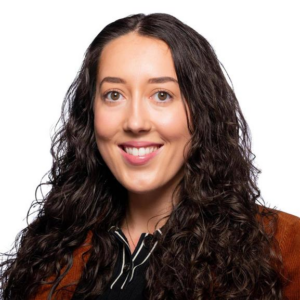
Brittany Oakley
Recruitment and Engagement Specialist - African Nova Scotia and Canadian Students
Department: Domestic Recruitment
Email: brittany_oakley@cbu.ca
CBU’s Social Work Department is dedicated to building a BSW cohort of individuals reflective of numerous diversities, life experiences, and skills. The department strives to have a minimum of 20% applicants who identify as Indigenous and/or African Nova Scotian admitted into the program.
Applicants wishing to pursue the Indigenous and African Nova Scotia admissions stream will be invited to self-identify on the admission application and Personal Statement . Applicants within this stream will be forwarded to the interview phase of the application process provided they have completed an undergraduate degree from an accredited university and submitted all required supplemental documents.
*Individuals with a grade average below 70% will be considered on a case-by-case basis.
Cape Breton University’s Bachelor of Social Work program will prepare the next generation of social workers with broad skills to address social and systemic inequalities in a changing world, as well as specific competencies and practical skills for practice in rural, Indigenous, and economically marginalized contexts. Grounded in the institution’s values of courage, cooperation, and quality, graduates of the Bachelor of Social Work program will demonstrate leadership in advancing social justice, work together with other professionals for the common good, and commit to continual improvement in the practice of social work.
Congruent with the profession’s purpose, and the Cape Breton University Department of Social Work’s mission, the BSW program engages a learning community model to prepare competent and practice-ready generalist practitioners. Our graduates are equipped to use an integrative approach and global perspective in multi-faceted roles and contexts to promote the ethics and values of social workers, sustainable social justice, peace, well-being, and human rights.
Cape Breton University’s BSW program aims to:
Students of African Nova Scotian/Canadian descent who are considering applying to the BSW program are encourage to contact Dionne Romard, Student Development Officer for students of African Descent or Reann Arsenault, Student Development Officer Program Coordinator working with Nova Scotia Youth. Dionne and Reann are happy to assist with your application, and addressing your needs is their utmost priority. They believe that with persistence and a tailored one-on-one experience, students will be able to thrive and succeed throughout their academic careers.
To find out more about their roles and services offered, please visit CBU.ca/ans.
CBU is proud to be the Atlantic Canadian leader in Indigenous post-secondary education. Indigenous culture, heritage and knowledge are integrated into CBU’s Indigenous education options, including the BSW program as it was developed through a two-eyed seeing approach, centering L’nu and other indigenous ways of knowing.
Students who identify as Indigenous and are considering applying to BSW program are encouraged to contact Indigenous Student Support at unamaki@cbu.ca. Students will be walked through the admission application and have your questions and concerns addressed. We can also provide insight on the additional support services available to you as a CBU students. Some of these supports include:

Department: Domestic Recruitment
Email: brittany_oakley@cbu.ca
Department: Student Affairs
Phone:
902-563-1838
Email: Dionne_Romard@cbu.ca
Office: B-134-C